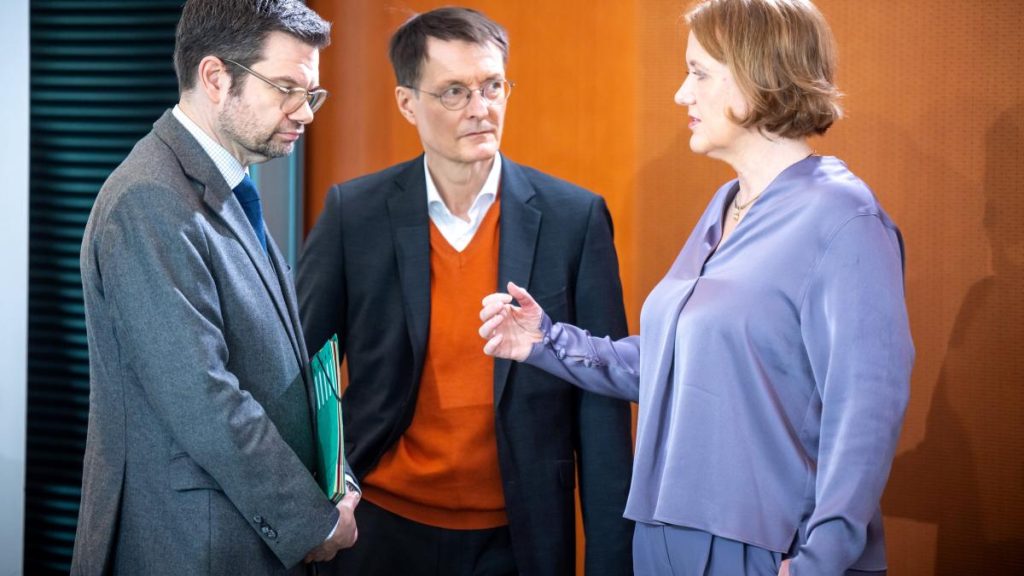The chairman of the CDU, Friedrich Merz, expressed concern about the potential for the coalition government to trigger another major societal conflict in Germany. This comes after the controversial self-determination law was passed, allowing individuals to declare themselves as the opposite gender by speech, and now the current abortion legislation is under review. A commission appointed by the government presented a final report recommending a significant liberalization of abortion rights, proposing that abortions in early pregnancy should be generally allowed. The commission also suggested that legal abortions could be considered in the middle phase of pregnancy up to the potential viability of the fetus, not only for medical or criminological reasons.
The experts appointed by the government prioritize the rights of pregnant women over the rights of the unborn in early pregnancy due to the existential dependence of the fetus on the pregnant woman’s body. They recommend that the protection of the unborn’s right to life may be less stringent prenatally compared to postnatally. The commission’s recommendations go against previous rulings by the Federal Constitutional Court, which stated that unborn human life has the same inherent worth and dignity as born life. The commission, however, approves of the mandatory counseling for pregnant women and proposes making abortions a reimbursable service to improve access to healthcare.
The commission also recommended legalizing egg donation, a practice currently banned in Germany, citing that the ban is outdated in light of recent developments. However, the commission expressed reservations about allowing surrogacy, stating that while the ban can be justified, exceptions could be considered in cases involving close relationships between the surrogate mother and intended parents. Ministers responsible for commissioning the report emphasized the need for a rational and fact-based discussion to avoid further polarization within society, referencing contentious abortion debates in other countries.
There is a division within the governing coalition, with the Greens advocating for strengthening women’s self-determination rights and supporting a nuanced approach to the abortion law, while the FDP opposes the proposed changes, arguing that the current compromise balances women’s autonomy and protecting the unborn. The government acknowledges the need for improved access to abortion services, especially in regions like Bavaria where women face lengthy journeys to access clinics. Health Minister Karl Lauterbach is also open to legalizing egg donation and emphasizes the importance of addressing access to healthcare regardless of the abortion law.
Opposition parties strongly criticize the government’s stance on abortion, with the CSU deputy chairwoman warning that relaxing abortion laws undermines the fundamental values of society. The government’s warning against divisive debates is dismissed as the opposition accuses the coalition of reopening a cultural battle unnecessarily, potentially leading to dangerous divisions within society. The government remains committed to fostering a rational and inclusive discussion on abortion legislation, acknowledging the complexities of the issue and the need for a balanced approach that respects both women’s rights and the sanctity of life.


